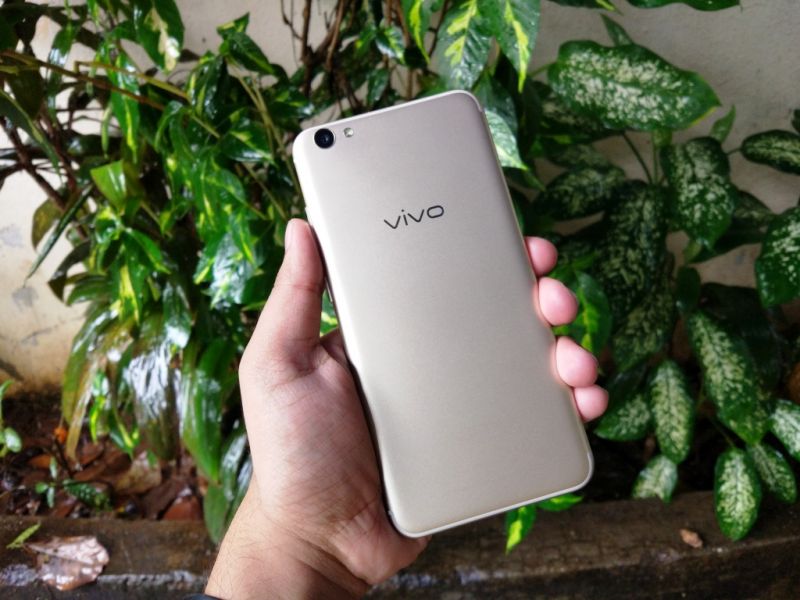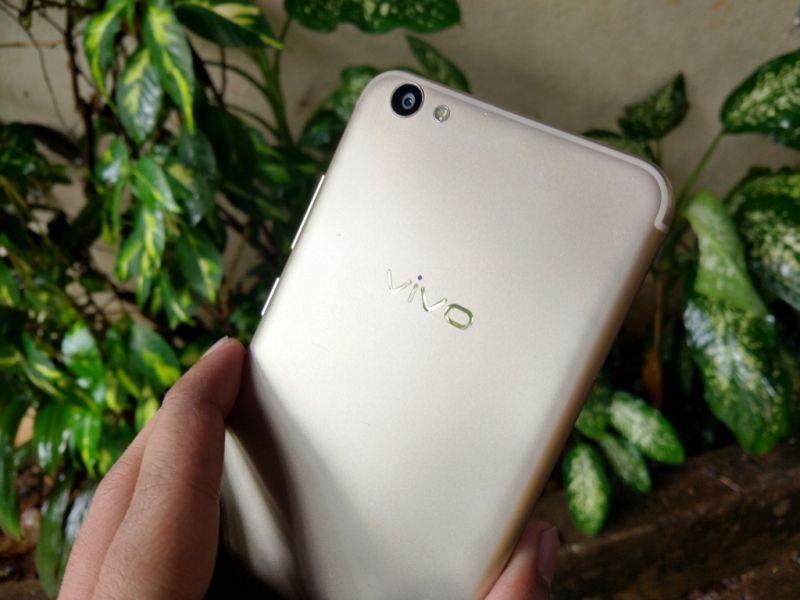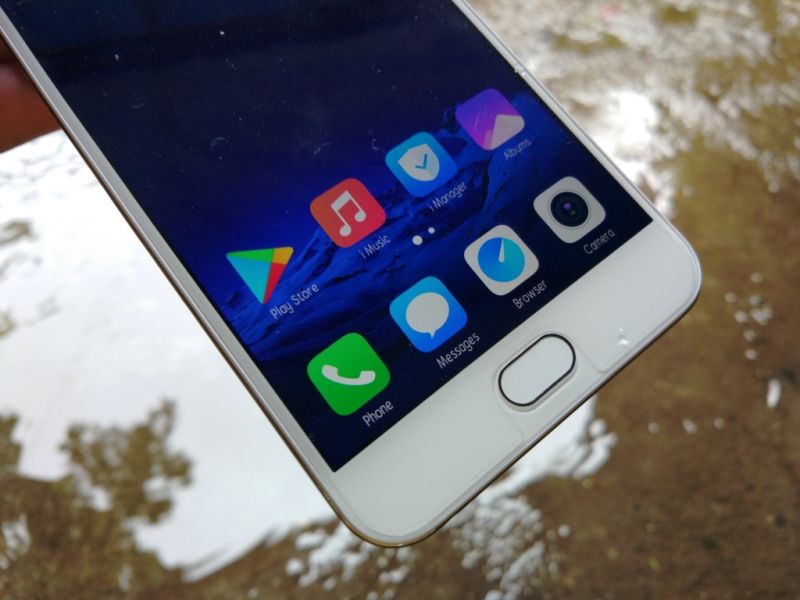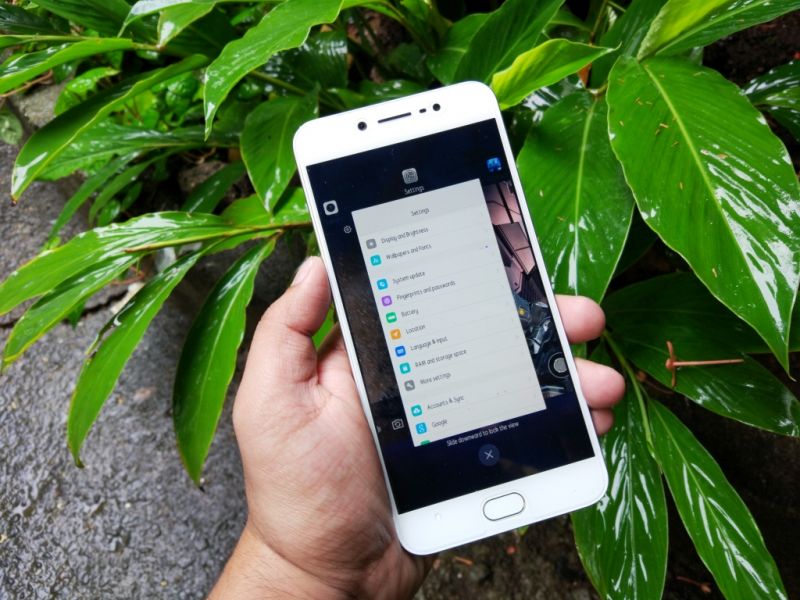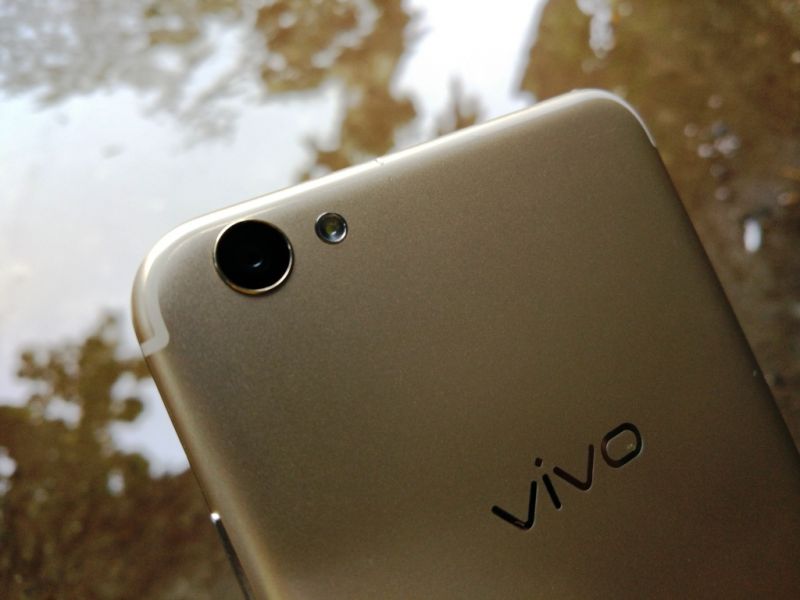Vivo V5s review: Android with the convenience of an iPhone

The mid-range smartphone segment these days is full of Android smartphones with great specifications and impressive build quality. You have performance options in the form of Xiaomi’s Redmi Note 4, camera options from Moto G5 Plus, appearance and build offerings from Honor 8 Lite and so on. The one aspect that all of them have in common is – targeting the consumer. All of the brands try to focus on different segments of consumers with one mastered aspect. This has made it difficult for the non-geeky, casual smartphone seeker, to understand what he actually needs his smartphone for.
What if someone manufactured a smartphone aimed for consumers that just go with design and usability? It seems that Vivo aims to target such audience with one of their latest offerings – the Vivo V5s. Priced a bit higher at Rs 17,990, this phone wants to target the user who needs an overall respectable experience without getting himself/herself concerned about how the internals of the device performs for him. Seemed to be tempting to geeks like us, we got our hands on the V5s for a few days to see how it fares in the real world.
One of the most important and foremost criteria for a user looking to get a new mid-range smartphone is its appearance — the aesthetics. In the world of beautiful metal and glass-bodied smartphones, the Vivo V5s is made of soft-finish polycarbonate along with a 2.5D glass upfront. While this may sound to be a deal breaker for a smartphone costing just under Rs 20,000, it is not that bad at all in reality.
Despite being made of polycarbonate, the overall finish makes it stand on par with its metal-bodied rivals. It still feels like a premium mid-range smartphone with all the tiny details that Vivo has carefully and tastefully worked on. For example, the screws at the bottom of the phone alongside the micro USB port give out a taste of an expensive gadget.
The rear of the phone has iPhone 7-esque, U-shaped antenna bands, which seems unnecessary to geeks, but a good thing. However, unlike the iPhone 7, there’s no camera bump here. The 2.5D glass also works effectively to enhance the look of the device.
There’s a fingerprint scanner under the home button that's always active. Note that the button is not a physical button, but is similar to an iPhone or OnePlus 5, with a haptic feedback for a physical feel.
To please the target group and annoy the geeks out there, the V5s is built around a MediaTek MT6750 octa-core chipset clocked at 1.5Ghz. 4GB of RAM accompanies the chipset along with 64GB of onboard storage to provide the user with a respectable user experience. Vivo utilises a custom version of Android on their smartphones and the V5s is no exception with its FunTouch OS 3.0 based on Android 6.0.
While the world is waiting for Android 8.0, Vivo’s decision to go with a two-year-old version of Android certainly doesn’t seem to be a good one as it misses on the latest security updates and features. That said, FunTouch OS is a 90 per cent replica of iOS 10, with apps like iMusic and iTheme. Even the ‘Settings’ menu adorns the look of iOS (see below).
All of this translates into an experience that’s pretty different from the ones provided by its Android rivals. As for the performance, there’s no noticeable lag in the UI during everyday tasks — and that's one achievement accomplished. Apps open instantly and animations take place without any lags. The iOS-inspired interface does take away the familiarity of Android’s ease-of-use but works well once you get used to it. In fact, this one of those iPhone clones that actually works like the original one — sans the actual iOS performance that the iPhone can deliver.
But, keep in mind that the V5s sports a MediaTek chipset, which means it is comfortable with light and casual games such as Temple Run 2, Subway Surfers, Angry Birds 2 and NOVA Legacy. High-end titles like Asphalt 8 and Need for Speed No Limits do tend to leave the smartphone struggling to match its everyday performance.
Vivo advertises the V5s’ selfie camera as the standout feature of the smartphone and it definitely shows. The 20MP selfie camera captures lots of details in good lighting conditions with realistic colours and contrasts. Even in low lighting, there’s minimal noise in the pictures – thanks to the ‘moonlight’ front flash that makes it certainly the best selfie camera in the mid range smartphone segment. It would have been better if Vivo included the auto-focus function for the front camera to get respectable sharpness in selfies. Nonetheless, if you are looking for a good selfie camera smartphone, you should consider the V5s seriously — you will definitely be posting good quality selfies.
 The 'Face Beauty' mode achieves a fine balance between details and colours.
The 'Face Beauty' mode achieves a fine balance between details and colours.
The 13MP rear camera is good too — it has the ability to retain natural colours and contrast in most light conditions. However, the detailing in images tends to take a hit, which is something that Vivo should have taken care of. Nonetheless, you won’t be disappointed with the image quality of the Vivo V5s’ rear camera.
 The camera manages to retain actual colours in overcast lighting conditions.
The camera manages to retain actual colours in overcast lighting conditions.
 Despite retaining natural colours and contrast, it loses out on sharpness.
Despite retaining natural colours and contrast, it loses out on sharpness.
 In normal lighting, the photos develop a bluish tone.
In normal lighting, the photos develop a bluish tone.
 In artificial light, the camera manages to eradicate image noise pretty well.
In artificial light, the camera manages to eradicate image noise pretty well.
The V5s is fuelled by a 3000mAh battery, which is average for smartphones in 2017. Despite that, the V5s manages to last a day with moderate usage that involves texting, video calling, web browsing, photography and light gaming. Vivo packs in a fast 2V/9A charger with the unit which doesn’t to seem to charge as fast one would expect. It usually takes almost an hour to top up from 75 percent, which is not good for those smartphone seekers who are always on-the-go.
To sum up the whole experience, the Vivo V5s manages to provide a different user experience with its iOS-inspired interface, a good front as well as rear camera unit and decent overall performance – everything that a non-geeky smartphone seeker would look for. There are certainly a few areas that could see an improvement —a metal body and a more recent operating system would have complemented the price.
And now it's time for the most important question – is the Vivo V5s worth a buy? If you want something different from the Android ecosystem or want to taste the best of both worlds — Android OS with an iOS flavour — then the Vivo V5s is just right for you. However, we find the price for the device a tad high considering other rivals that can stand out in the mid-range segment. If you are looking for a better alternative in the specifications department and have a considerably lower budget, options from the likes of Xiaomi, Honor and a few others can be considered. But if selfies are really as important, along with a decent daily driver for your everyday chores, the Vivo V5s can be a good tie-breaker.
This article has been published on Deccan Chronicle.

